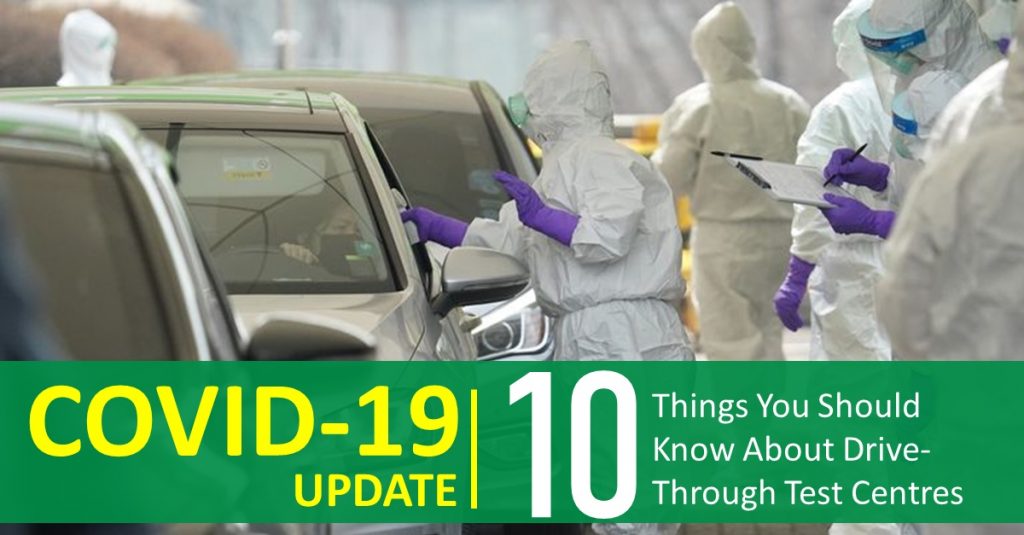South Korea has opened up testing centres, which allows people to drive through to get tested to know if they have been infected with the Coronavirus also known as COVID-19.
In this piece, we will highlight 10 things you should know about these testing centres, their impact, the current statistics in the country as well as how it is impacting the spread and containment of the Coronavirus.
The Testing Centres Are Free to Use
South Korea opened up testing centres that people can drive in and go through. The testing centres are free for people to use and once anyone gets identified, he/she is put into quarantine
How Do the Drive-Through Test Centres Work?
To understand how these drive-through centres work, we will share the experience of a certain 45-year-old Rachel Kim who got decided to go for the test.
She developed a bad cough and a fever. Fearing the worst, she decided to get a Covid-19 test at one of the dozens of drive-through centres. Two people dressed head-to-toe in white protective clothing, clear goggles and surgical face masks are ready for her.
A long swab stick is rummaged around the back of her mouth and throat and then placed carefully into a long test tube.
Then comes the tough bit. The swab goes right up her nose. She screws up her eyes in discomfort, but the whole thing is over in minutes. She rolls up her car window and off she drives. She will get a call if the result is positive, or a text if it’s negative.
How Are the Samples Tested?
Rachel’s sample is quickly shipped off to a nearby laboratory where staff are working 24 hours a day to process the results.
How Did South Korea Come Up With This Strategy?
“We learned the risk of new infection and its ramifications from the experience of the Middle East Respiratory Syndrome (Mers) back in 2015,” Professor Gye Cheol Kwon, the chairman of the Laboratory Medicine Foundation revealed to the BBC. Thirty-six people died in South Korea during the Mers outbreak.
How Far Has South Korea Gone to Fight the coronavirus Pandemic?
South Koreans managed to design and create a test, set up a network of labs across the country and get it all to work in 17 days.
According to Prof Kwon, “To learn from the past and prepare systems in advance… that might be the true power to overcome this new kind of disaster.”
Coronavirus Continues to Spread
The coronavirus continues to spread around the world. Currently, Italy’s death toll has surpassed that of China. Governments all over the world have called on citizens to self-isolate, closed borders, put cities into lockdown and shut all but essential businesses.
South Korea has the Lowest Casualty Rate
Amid the crisis, and despite a second wave of infections in Asian countries, South Korea continues to lead the way in containing the spread of COVID-19, with one of the lowest casualty rates in the world.
The Death Rate in South Korea, Italy, Mainland China, Hong Kong and the United States
the COVID-19 death rate is 0.97 per cent in South Korea, compared to 7.94 per cent in Italy, 3.98 per cent in mainland China and Hong Kong, and 1.68 per cent in the United States.
Why is South Korea Handling COVID-19 So Well?
One of the reasons South Korea has done so well is that it has a robust biotech industry. This industry consists of many small companies run by scientists.
Lessons and Strategies That Can be Replicated in Other Countries
When Chinese scientists first published the COVID-19 virus’ genetic sequence in January, at least four South Korean firms quietly began developing and stockpiling test kits alongside the government – well before the country had its first outbreak.
By the time things got bad, the country had the ability to test more than 10,000 people per day, including at makeshift drive-through testing centres and newly added consultation phone booths at hospitals.
Anyone with a mobile phone in the country also received alerts about nearby infection paths so that citizens could avoid areas where the virus was known to be active.
At the same time, the South Korean government created a GPS-enabled app to monitor those under quarantine and set off an alarm if they ventured outdoors. Travellers entering the country are also being asked to record their symptoms on a state-sponsored app.
Unlike other countries, South Korea also managed to turn its outbreak around without locking down cities or banning travel.
Source: Aljazeera
Final Thoughts on Coronavirus Drive Through Testing Centres
At the time of writing this, Israel, South Africa and other countries around the world are throwing a lot of effort into setting up drive-through hubs. These hubs are designed to test people for the coronavirus; copying a model that has proven effective in South Korea.
As reported on France24, France and Spain have also begun opening drive-through testing centres. Ireland has equally opened one such facility in the country’s largest stadium in Dublin.
